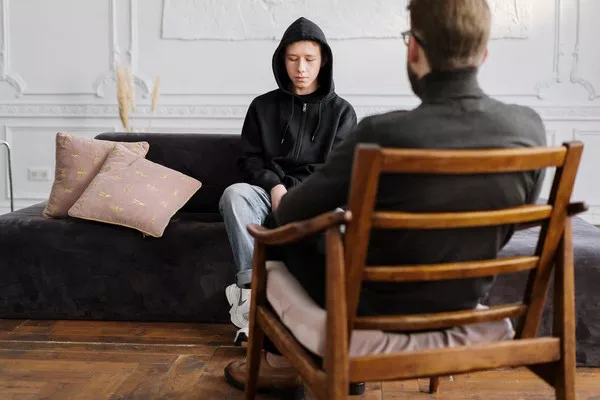Social anxiety disorder is a common mental health condition that affects millions of people worldwide. It’s characterized by a persistent fear of social situations, such as public speaking, meeting new people, or even eating in front of others. This fear can be so intense that it interferes with daily life and can lead to isolation, low self-esteem, and other mental health issues. Fortunately, there are several strategies and techniques that can help individuals overcome social anxiety disorder and improve their quality of life.
Cognitive Behavioral Therapy (CBT)
Cognitive behavioral therapy is a type of talk therapy that focuses on changing negative thought patterns and behaviors that contribute to social anxiety disorder. It involves identifying and challenging negative thoughts, learning new coping skills, and gradually exposing oneself to feared social situations. Some key techniques used in CBT include:
- 1.1. Relaxation techniques such as deep breathing, progressive muscle relaxation, and yoga.
- 1.2. Cognitive restructuring, which involves replacing negative thoughts with more realistic and positive ones.
- 1.3. Exposure therapy, which involves gradually facing feared social situations, starting with less anxiety-provoking ones and gradually working up to more challenging ones.
Medication
Medication can also be a helpful tool in managing social anxiety disorder. Some commonly prescribed medications include:
- 2.1. Selective serotonin reuptake inhibitors (SSRIs): These medications work by increasing levels of serotonin in the brain, which can help regulate mood and reduce anxiety.
- 2.2. Benzodiazepines: These medications act quickly to reduce anxiety symptoms, but they can be habit-forming and may cause drowsiness, dizziness, and other side effects.
- 2.3. Beta-blockers: These medications can be used to reduce physical symptoms of anxiety, such as rapid heartbeat and shaking.
It’s important to note that medication should be used in combination with therapy and other self-help strategies for maximum benefit.
Lifestyle Changes
Making certain lifestyle changes can also help individuals manage social anxiety disorder. Some of these changes include:
- 3.1. Regular exercise: Exercise has been shown to have a positive effect on mental health, reducing symptoms of anxiety and depression.
- 3.2. A healthy diet: Eating a balanced diet that includes plenty of fruits, vegetables, whole grains, and lean proteins can help improve mood and reduce anxiety.
- 3.3. Avoiding alcohol and drugs: Alcohol and drugs can exacerbate symptoms of anxiety and interfere with treatment.
Self-Help Techniques
In addition to therapy, medication, and lifestyle changes, there are several self-help techniques that individuals can use to manage their social anxiety disorder. These include:
- 4.1. Mindfulness meditation: Mindfulness meditation involves paying attention to the present moment without judgment. It can help reduce anxiety and improve overall well-being.
- 4.2. Social skills training: Learning new social skills, such as assertiveness and active listening, can help individuals feel more confident in social situations.
- 4.3. Joining a support group: Joining a support group can provide a safe and supportive environment for individuals to share their experiences and learn from others.
In conclusion, social anxiety disorder is a common mental health condition that can have a significant impact on an individual’s quality of life. However, with the right strategies and techniques, it is possible to overcome social anxiety disorder and regain control over one’s life. Cognitive behavioral therapy, medication, lifestyle changes, and self-help techniques can all be effective tools in managing social anxiety disorder. If you are struggling with social anxiety disorder, don’t hesitate to seek help from a mental health professional.
Finally, it’s important to recognize that overcoming social anxiety disorder is a process that takes time and effort. Don’t be discouraged by setbacks or challenges along the way. With persistence and dedication, it is possible to overcome social anxiety disorder and achieve a happier, healthier life.
Related Topics:





























